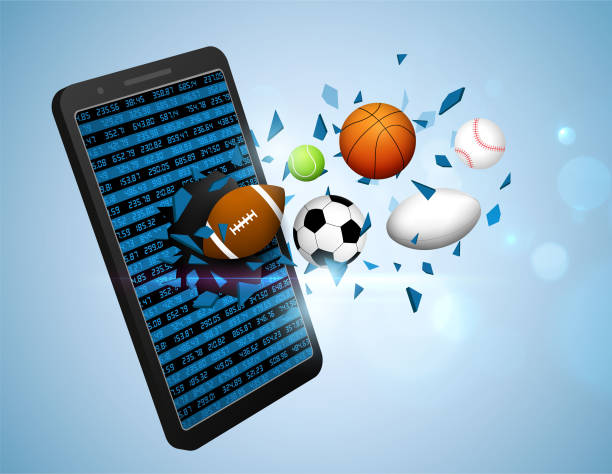How Blockchain is Changing Mobile
Ubaid Majeed is the Editor-in-Chief at the Mountain Ink.

How Blockchain is Changing Mobile
The world of technology is in a constant state of evolution, and one of the most disruptive forces shaping the future is blockchain technology. Originally the backbone of cryptocurrencies like Bitcoin, blockchain is now making strides in various sectors, including mobile technology. In this article, we will explore how blockchain is changing mobile, discussing the implications for security, app development, payment systems, and user experience. Moreover, we will delve into how this integration provides a myriad of benefits for both businesses and consumers. For a deeper dive into blockchain and its applications, you can check out How Blockchain is Changing Mobile Casinos in Bangladesh https://www.eco3.org/es/.
1. The Rise of Decentralized Applications (dApps)
One of the most significant impacts of blockchain on mobile is the development of decentralized applications, commonly known as dApps. These applications leverage blockchain technology to operate on a peer-to-peer network rather than relying on centralized servers. This decentralization offers numerous advantages over traditional apps, such as improved privacy and reduced chances of data breaches. Developers are increasingly creating dApps in various domains, including finance (DeFi), gaming, and social networking, pushing the boundaries of what mobile applications can achieve.
2. Enhanced Security Features
Security is a paramount concern for mobile users. As smartphones become increasingly integral to our daily lives, the need for enhanced security measures grows. Blockchain provides a robust solution through its decentralized nature and cryptographic algorithms. Transactions and user data stored on a blockchain are inherently secure and immutable, making them resistant to tampering or unauthorized access. By integrating blockchain into mobile technology, companies can significantly enhance the security of their services, resulting in increased user trust and confidence.
3. Streamlined Payment Systems

The integration of blockchain technology into mobile payment systems is transforming how consumers make transactions. With the rise of mobile wallets and payment apps that utilize cryptocurrencies, users now have the option to conduct seamless transactions without relying on traditional banking systems. This revolution not only expedites the payments process but also reduces transaction fees and eliminates currency conversion issues for international transactions. For businesses, adopting blockchain-based payment solutions can lead to lower operational costs and increased efficiency.
4. Improved Transparency and Traceability
Transparency is a critical requirement in today’s digital landscape. Blockchain technology offers a transparent way to track and verify transactions, allowing consumers to see the entire journey of a product or service. For mobile applications, this means that users can verify the authenticity of digital assets, whether it’s artwork, music, or any other form of content. Moreover, businesses can build trust with consumers by providing clear and immutable records of their operations, enhancing brand loyalty and customer satisfaction.
Support Our Journalism
You are reading this because you value quality and serious journalism.
But, serious journalism needs serious support. We need readers like you to support us and pay for making quality and independent journalism more vibrant.
5. Smart Contracts on Mobile Platforms
Smart contracts, which are self-executing agreements with terms directly written into code, represent another innovation that blockchain brings to the mobile ecosystem. By enabling smart contracts on mobile platforms, businesses can automate a variety of processes, reducing the need for intermediaries and minimizing the potential for disputes. This automation results in faster transactions and improved efficiency across different sectors, from finance to real estate. As smart contract capabilities become more widespread, we can expect a surge in mobile applications that tap into this functionality.
6. Tokenization of Assets

Tokenization is the process of converting rights to an asset into a digital token on a blockchain. This innovative approach allows for fractional ownership of assets, making it easier and more affordable for individuals to invest in high-value items like real estate or art. Mobile platforms can leverage tokenization to create new investment opportunities and democratize access to previously exclusive markets, making investment more accessible to the general public.
7. Enhanced User Experience
As blockchain technology continues to evolve, so too does the user experience within mobile applications. By removing intermediaries and streamlining processes, mobile apps can provide users with faster and more efficient interactions. Moreover, the use of blockchain can lead to personalized experiences based on user data that is securely stored and managed. This enhanced user experience can result in higher user engagement and satisfaction, driving more downloads and usage of applications.
8. The Future of Mobile and Blockchain Integration
The future of mobile and blockchain integration looks promising. With advancements in technology, we are likely to see more seamless integrations that enhance the capabilities of mobile applications. Industries such as healthcare, logistics, and supply chain are already exploring ways to utilize blockchain for better tracking, transparency, and security. As mobile devices become more powerful and capable, the use of blockchain in mobile technology will likely expand, leading to innovative solutions that we have yet to imagine.
Conclusion
In conclusion, blockchain technology is undeniably changing the mobile landscape in profound ways. From the rise of decentralized applications to enhanced security measures, the implications of blockchain are vast and far-reaching. As businesses and developers continue to explore the advantages of blockchain integration, we can expect to see a transformation in how mobile technology functions, paving the way for a more decentralized, secure, and user-friendly digital environment. With each step forward, the possibilities are endless, and the mobile world stands on the brink of a revolutionary change.
Mountain Ink is now on Telegram. Subscribe here.
Become Our Ally
To help us strengthen the tradition of quality reading and writing, we need allies like YOU. Subscribe to us.




